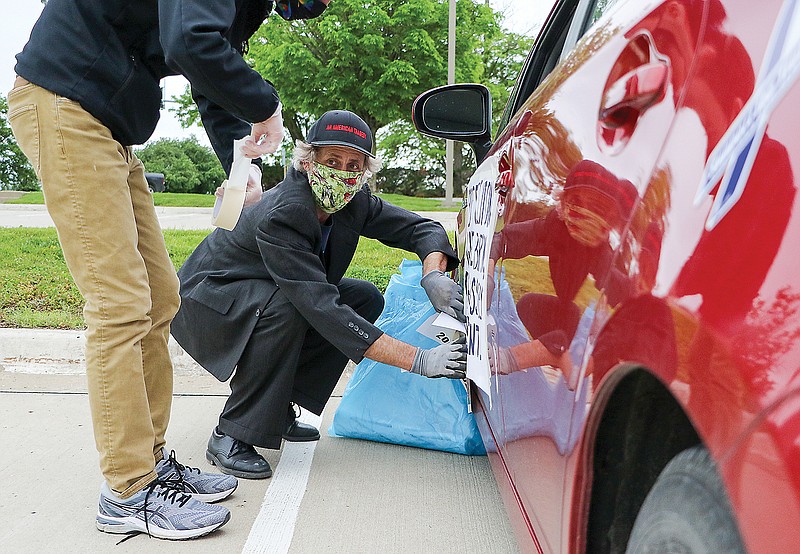Walter Barton, 64, was executed Tuesday evening by lethal injection.
Earlier in the day, protesters had taken to the streets of Jefferson City to ask Missouri's governor to halt Barton's execution - the first execution in the U.S. since March 5.
Barton was killed for the 1991 killing of Gladys Kuehler, an 81-year-old manager of a mobile home park in Ozark, near Springfield.
Kuehler was found dead in her bedroom - beaten, sexually assaulted and stabbed more than 50 times.
Barton used his final words to say he was innocent.
The history of the case against Barton is long and complicated, including the U.S. Supreme Court refusing to hear an appeal in 2000, and the Missouri Supreme Court upholding his conviction and death sentence in 2007.
Barton's first trial for first-degree murder ended in a mistrial in 1993, and there was another mistrial later that year, before he was convicted and sentenced to death the first time in 1994.
The Missouri Supreme Court overturned the conviction, and Barton was convicted and sentenced to death again in 1998.
A circuit court judge later ordered a new trial, and Barton was convicted of murder and sentenced to death a third time in 2006.
The forensic evidence used against Barton will likely continue to be debated - whether the small amount of Kuehler's blood found on his clothing really matched the amount of blood spilled and that could have stained her killer - as well as whether key testimony against Barton about an alleged confession was really reliable.
Jeff Stack called the evidence against Barton flimsy, and wanted a board of inquiry to look into the case - to make sure a wrongly convicted man was not to be executed: "This case should bother all Missourians."
Beyond the facts of Barton's case, there are bigger issues involved, though.
Stack was a spokesman for the Mid-Missouri Fellowship of Reconciliation - one of the groups that protested Tuesday in Jefferson City against Barton's execution, against the death penalty generally and against the death penalty being used during the waves of deaths sweeping the country because of the COVID-19 pandemic.
One sign posted on a car at the protest read, "Halt execution. COVID-19 has already killed so many!"
About 15 people in 10-12 cars drove through downtown a couple of times at noon - honking past sites including the Governor's Mansion and the state Capitol - before walking to the Capitol to seek to deliver to Gov. Mike Parson a letter asking him to change his mind and halt Barton's execution until an inquiry panel could rule on alleged new evidence of his innocence.
Other groups involved included the Missouri Catholic Conference, Missouri Faith Voices and Empower Missouri.
Stack said Kuehler's death is mourned, but she can't be memorialized by killing someone else.
"I'm not for revenge. I'm for protecting society, but I'm not for revenge," said Quinn Cunningham, another member of the Fellowship of Reconciliation.
Stack also said an execution during the pandemic is a risk to public safety and prison workers.
A Missouri Department of Corrections spokeswoman told the Associated Press that everyone entering the Bonne Terre prison where Barton was to be executed would have their temperatures taken and be offered face coverings.
The Rev. Cassandra Gould, executive director of Missouri Faith Voices, said of all the things a governor could be thinking about or not thinking about during the pandemic, carrying out an execution ought not to be one of them: "It's just a grave injustice."
The Associated Press contributed to this report.

